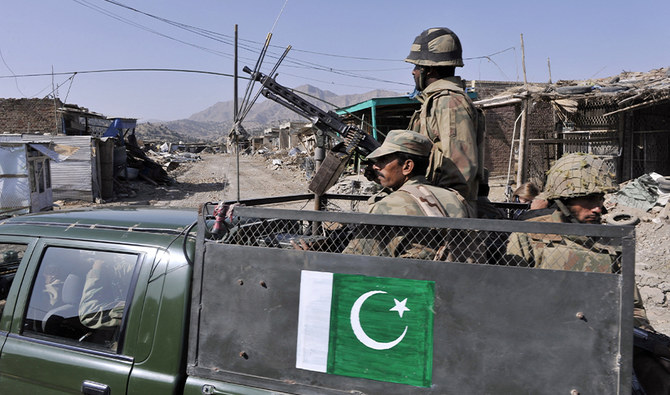ISLAMABAD: The Pakistani military said on Sunday a sepoy had been killed during an operation against “terrorists” in the northwestern South Waziristan district.
The army provided no further details, and the identity and nationality of the militants it was targeting were not immediately known. South Waziristan, a former stronghold of the Pakistani Taliban, is located near the Afghan border.
“Security Forces conducted an Intelligence Based Operation in Senai Narai, South Waziristan District, on reported presence of terrorists,” the army’s press wing said. “During intense exchange of fire with terrorists, Sepoy Junaid, age 20 years, resident of Balakot, District Mansehra, embraced shahadat [martyrdom]. Cordon and search operation is in progress to eliminate any terrorists found in the area.”
Since 2017, Pakistan has been fencing the country’s northwestern regions along the border to contain the movement of militants and to curb smuggling and illegal border crossings. Pakistan says it has completed more than 90 percent of the fence along the 2,611-kilometer (1,622-mile) boundary with Afghanistan known as the Durand Line.
Militant attacks in Pakistan have picked up in recent weeks as violence has surged in neighboring Afghanistan as US and allied forces withdraw after almost 20 years of war.











